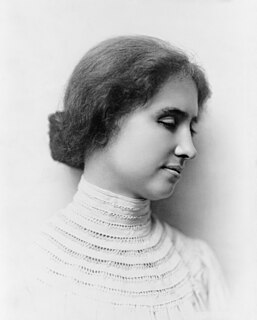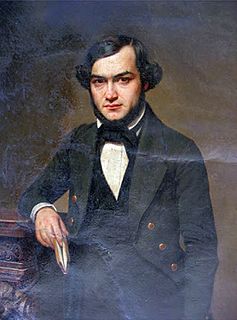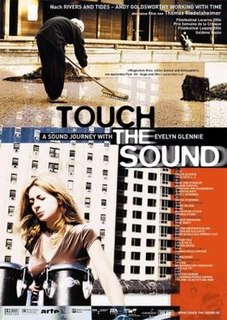 W
WDeaf culture is the set of social beliefs, behaviors, art, literary traditions, history, values, and shared institutions of communities that are influenced by deafness and which use sign languages as the main means of communication. When used as a cultural label especially within the culture, the word deaf is often written with a capital D and referred to as "big D Deaf" in speech and sign. When used as a label for the audiological condition, it is written with a lower case d. Carl G. Croneberg coined the term of "Deaf Culture" and he was the first to discuss analogies between Deaf and hearing cultures in his appendices C/D of the 1965 Dictionary of American Sign Language.
 W
WBANZSL, or British, Australian and New Zealand Sign Language, is the language of which British Sign Language (BSL), Auslan and New Zealand Sign Language (NZSL) may be considered dialects. These three languages may technically be considered dialects of a single language (BANZSL) due to their use of the same grammar, manual alphabet, and the high degree of lexical overlap. The term BANZSL was coined by Trevor Johnston and Adam Schembri.
 W
WRoch-Ambroise Auguste Bébian was one of the first hearing educators in France to achieve native-level fluency in French Sign Language. He wrote an important book titled "Mimographie," which was published in 1825, which utilized a method of writing signs.
 W
WChildren of a Lesser God is a play by Mark Medoff, focusing on the conflicted professional and romantic relationship between Sarah Norman, a deaf former student, and her teacher, James Leeds. The play, which premiered at the Mark Taper Forum in 1979, was produced on Broadway in 1980 and in the West End in 1981. The play won the 1980 Tony Award for Best Play.
 W
WCarl G. Croneberg is a Deaf linguist known for his work on American Sign Language (ASL).
 W
WThe Deaf rights movement encompasses a series of social movements within the disability rights and cultural diversity movements that encourages deaf and hard of hearing to push society to adopt a position of equal respect for them. Acknowledging that those who were Deaf or hard of hearing had rights to obtain the same things as those hearing lead this movement. Establishing an educational system to teach those with Deafness was one of the first accomplishments of this movement. Sign language, as well as cochlear implants, has also had an extensive impact on the Deaf community. These have all been aspects that have paved the way for those with Deafness, which began with the Deaf Rights movement.
 W
WDeafblindness is the condition of little or no useful hearing and little or no useful sight. There are different degrees of vision loss and auditory loss within each individual, thus making the deafblind community unique with many types of deafblindness involved. Because of this diversity, each deafblind individual's needs regarding lifestyle, communication, education, and work need to be addressed based on their degree of dual-modality deprivation in order to improve their ability to live independently. In 1994, it was estimated that roughly 35,000–40,000 United States residents are medically deafblind. Helen Keller was a well-known example of a deafblind individual.
 W
WFingerspelling is the representation of the letters of a writing system, and sometimes numeral systems, using only the hands. These manual alphabets, have often been used in deaf education, and have subsequently been adopted as a distinct part of a number of sign languages; there are about forty manual alphabets around the world. Historically, manual alphabets have had a number of additional applications—including use as ciphers, as mnemonics, and in silent religious settings.
 W
WSteve Hamerdinger is a Deaf professional and advocate for deaf and hard of hearing people. He is the current Director of Deaf Services for the Alabama Department of Mental Health. His work revolves around contexts related to deaf and hard of hearing persons and their mental well being from childhood to end of life. He is an advocate for Deaf rights and has been a prominent influence in this field since the early 1980s.
 W
WA hearing dog is a type of assistance dog specifically selected and trained to assist people who are deaf or hard of hearing by alerting their handler to important sounds, such as doorbells, smoke alarms, ringing telephones, or alarm clocks. They may also work outside the home, alerting their handler to sounds such as sirens, forklifts, and a person calling the handler's name.
 W
WMiss & Mister Deaf World (MMDW) is an international beauty pageant which crowns young deaf women "Miss Deaf World" and young deaf men "Mister Deaf World" every year, usually in Prague, in the Czech Republic.
 W
WOvidius, also Saint Auditus, is a Portuguese saint. According to hagiographies of the 16th century, Ovidius was a Roman citizen of Sicilian origin. Tradition states that he was sent to Braga by Pope Clement I, where he served as the city's third bishop around 95. He is said to have baptized Saint Marina and her sisters after they were abandoned by their mother.
 W
WPierre Pélissier was a pioneer for deaf education in France in the mid 19th century. He was born September 22, 1814 in Gourdon, Lot, and died April 30, 1863. He was a teacher of the deaf and also wrote a dictionary for an early form of French Sign Language in 1856. He studied first at Rodez and Toulouse, under Abbot Chazottes. He then became a teacher at the School of the Deaf in Toulouse. He was the deputy secretary of the Central Society for Deaf Mutes in Paris in 1842. At 29, in 1843, he went to Paris to teach at the Imperial School for Deaf Mutes, until his death.
 W
WJacob Rodrigues Pereira or Jacob Rodrigue Péreire was an academic and the first teacher of deaf-mutes in France.
 W
WThe Quiet Man is an action-adventure beat 'em up video game developed by Human Head Studios and published by Square Enix for Microsoft Windows and PlayStation 4. The game's story is told through lengthy full motion video sequences, some of which feature live-action actors, inserted between the gameplay sequences, and it features a deaf protagonist, which is reflected by having most of the events except for the opening and ending scenes having heavily muted sound with no subtitles regardless of the settings, being a deliberate choice from the developers.
 W
WSign languages are languages that use the visual-manual modality to convey meaning. Sign languages are expressed through manual articulations in combination with non-manual elements. Sign languages are full-fledged natural languages with their own grammar and lexicon. Sign languages are not universal and they are not mutually intelligible with each other, although there are also striking similarities among sign languages.
 W
WTouch the Sound: A Sound Journey with Evelyn Glennie is a 2004 German documentary film directed by Thomas Riedelsheimer about profoundly deaf Scottish classical percussionist Evelyn Glennie. In the film Glennie, who won a Grammy Award in 1989, collaborates with English experimental musician Fred Frith and others, and explains how she perceives sound. The film appeared at over 20 film festivals across the world, and won several awards, including "Best Documentary" at the 2004 BAFTA Awards, Scotland.
 W
WThe World Federation of the Deaf (WFD) is an international non-governmental organization that acts as a peak body for national associations of Deaf people, with a focus on Deaf people who use sign language and their family and friends. WFD aims to promote the Human Rights of Deaf people worldwide, by working closely with the United Nations and various UN agencies such as the International Labour Organization (ILO) and the World Health Organization (WHO). WFD is also a member of the International Disability Alliance (IDA).